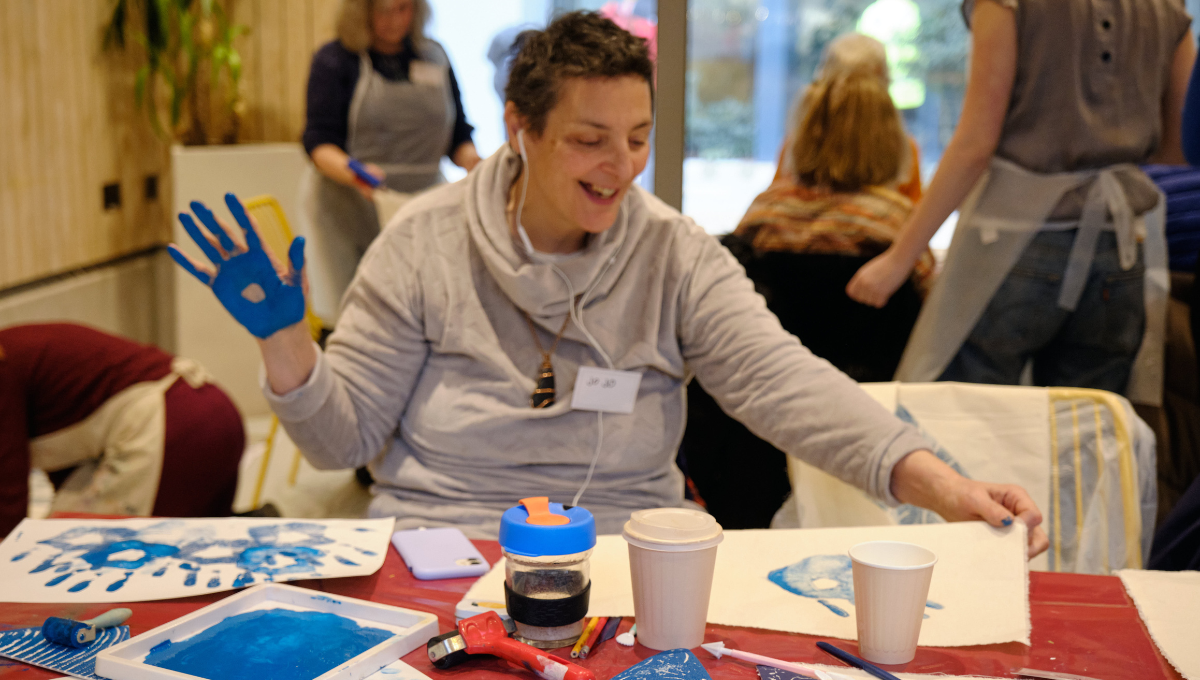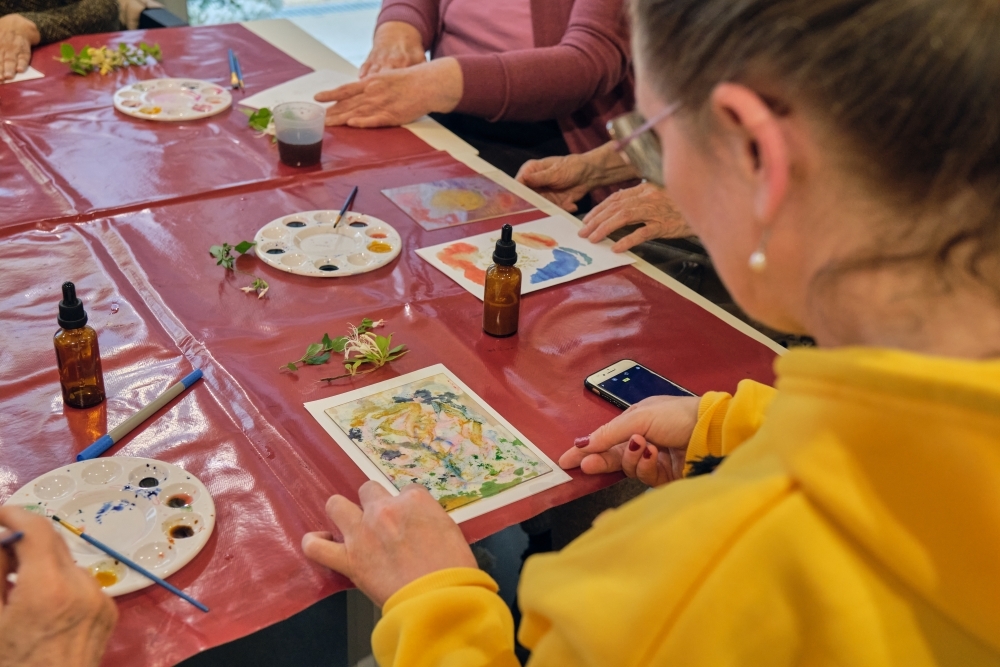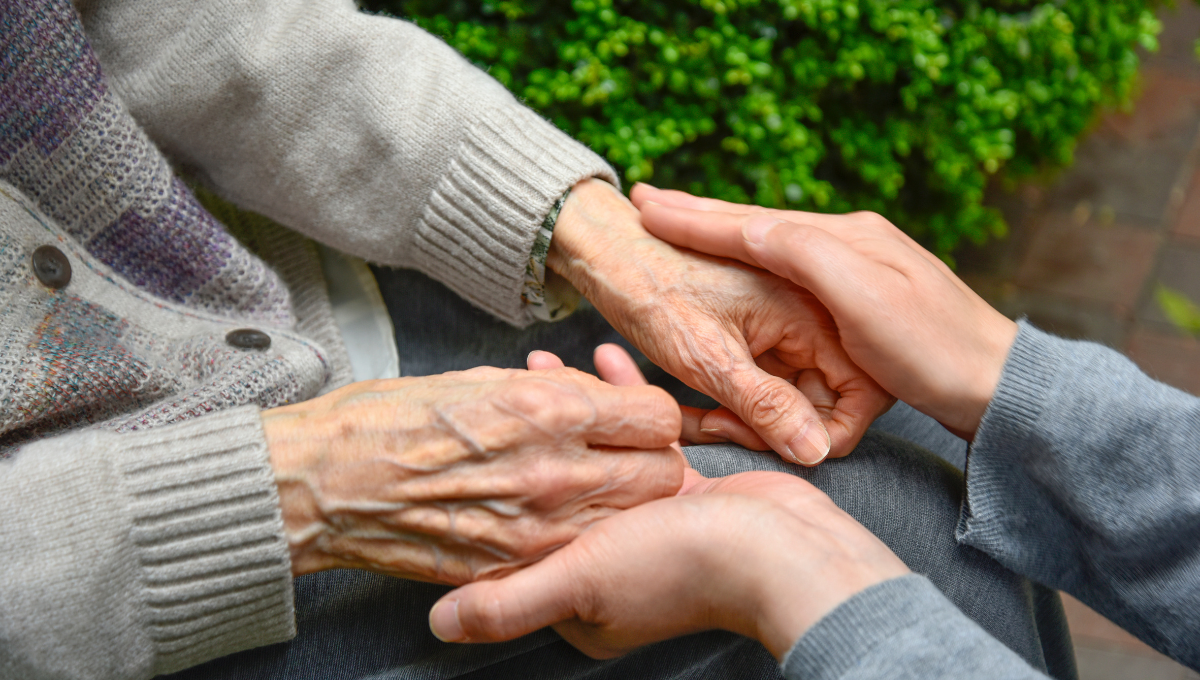
Transforming lives for those with dementia

People living with the effects of dementia, as well as their loved ones and carers, can find themselves cut off from the community around them. That's what makes community-based solutions and programmes so important for transforming lives and offering hope and respite. This Dementia Action Week (19th - 25th May), we're delighted to support a range of community organisations - thanks to our generous donors - whose programmes and services are transforming the lives of those with living with dementia in all its forms across London.
The impact of good 'Neighbours'
St Raphael’s Hospice was founded in 1987 to provide expert and compassionate end of life care to people in the boroughs of Merton and Sutton. Each year they care for more than 800 people, either in the community or onsite at their recently refurbished Inpatient Unit. They received a grant from Wimbledon Foundation Community Fund towards their Compassionate Neighbours programme in Merton where volunteers provide social, emotional and practical support to 60 residents affected by life-limiting illness, isolation and loneliness to help improve mental health and wellbeing.
The programme has run since 2023 and involves recruiting and training local volunteers to provide about two hours of time each week to visit or phone someone in their community. Volunteers are matched one-to-one, allowing them to build a strong personal relationship and bond with those people they support. This long term support directly addresses the social isolation and loneliness experienced by the project’s participants. Experiencing loneliness has been shown to increase the risk of people developing dementia, and it is also a leading predictor of suicide risk among older people.
Jim, a beneficiary of our Compassionate Neighbours project, is a retired print worker who lives locally his wife Brenda:
Having led a busy and sociable life Jim has, in recent years, been living with dementia. Jim’s confidence, independence and social life have declined, and he has become socially isolated. This isolation has further accelerated the impact of his dementia.
Jim has been receiving loving support from Brenda. Despite the significant responsibilities involved, she is dedicated to helping Jim enjoy the best quality of life possible. Previously Brenda brought Jim into our Wellbeing Centre where he enjoyed the company and support of our weekly Men’s Den group. The impact on Jim’s mood was clear and positive. Unfortunately, as his dementia progressed, Jim became unable to leave his home. It was then that our Compassionate Neighbours project was able to step in and provide the help and support Jim needs. Since Jim was unable to come to us, we went to see Jim.
We assessed Jim in his home at which time we identified and trained a skilled, enthusiastic volunteer: David. David now visits Jim weekly for a chat and some company. They share an interest in sport and reminiscing about London over the years. Jim comes to life when David visits and provides a break in his routine, something to look forward to during the week. Significantly David’s visits also provide some “me time” for Brenda by prioritising her wellbeing as well as Jim’s. Brenda, who attends our Wellbeing sessions herself, regularly tells us about how much difference Compassionate Neighbours makes to Jim, helping him stay connected to his community through David’s regular visits.
Connection and fun through creativity and the arts

Arts For Dementia provide creative activities at the Tree House, Elephant Park for people with early-stage dementia and their carers. The programme is funded by a grant from Elephant and Castle Community Fund which allows the organisation to cover the costs of a whole host of local artists sharing their skills and contributes to supporting the Arts For Dementia team costs too. The funding even allowed them to exhibit some of the artwork created by their participants at the Urban Elephant Festival which helped raise their profile and challenged stigma around dementia too.
These challenging and inspirational sessions, including mixed media, dance, textiles and print-making, help to enhance wellbeing, build connection with others and slow cognitive decline. They play a key role in identifying and encouraging the participation of those with early-stage dementia, in the community, who are harder to reach than those in moderate stages, who are often in residential care. This is where a community-based organisation like Arts For Dementia can have the biggest impact, linking with the local social prescribing team, Admiral Nurses, memory cafes and older adults organisations.
Our popular year-round creative programme at the Tree House in Elephant Park fosters community and supports well-being, and has explored ceramics, textiles, dance and animation over the last year. All providing regular, meaningful and socially engaging activities for people with early stage dementia and their loved ones.
Penny Fosten, Chief Executive, Arts For Dementia
Gill and Dave have attended three programmes run by Arts for Dementia:
'We started to notice something was wrong about four years ago... I could see something serious was looming…Dave wasn’t in his comfort zone any more…’
It took Dave a good year to get a diagnosis which he received on his return from a wild camping holiday in South Africa. Dave was told that he had Lewy-body dementia (a progressive brain disorder that leads to problems with thinking, movement, mood, and behavior). At the Arts For Dementia programmes the couple have been challenged and had the chance to ‘show off’ what they can do. Gill loves the range of materials and the variety of activities on offer. Gill and Dave feel supported and encouraged in the sessions, they have made good friendships with another couple. They like the routine of going each week, knowing their journey, the hot chocolate beforehand, and the regularity of the team from Arts for Dementia.
‘There's a certain magic that happens there each week. You go home feeling good about yourself’
Importantly for Gill as a carer it’s a time to relax and not worry about Dave:
‘It gives me a chance to think about what I want to do. I loved it because I see Dave enjoying and expressing himself. Seeing him producing things is just lovely and I get my own kicks of self-expression too.’
Dave, commenting on the printing workshop, said ‘…it made me look at things differently and have a day when I’m not thinking about my illness… when I can be fairly normalish.’
Gill and Dave say that they talk about the workshops a lot, and they will, in Gill’s words ‘miss it like hell when it finishes’.
Staying physically active and socially engaged can slow the progression of dementia
The funding from Deutsche Bank and The London Community Foundation has enabled us to start a new peer support project that offers meaningful and enjoyable outdoor experiences for people living with dementia. This has boosted confidence in individuals and carers, while also creating a vital support network for all.
Fiona Baird, CEO, Newham New Deal Partnership
Newham New Deal Partnership received a two-year grant from Deutsche Bank Older People's Fund to deliver a pilot programme of activities for 50 older people with dementia and their carers in Newham.
The organisation supports over 135 people who have been diagnosed with memory problems and dementia every year through the community dementia support service (for Newham Council). This includes running face to face peer support sessions a month to help people with dementia and their family carers live well with the disease. The regular social engagement and physical and mental stimulation can delay the progression of many dementias but it also helps clients to grow in confidence helping them to access mainstream activities that take place in Newham, such as walking groups, dance activity (English National Ballet specialist classes in Canning Town), dementia friendly cinema outings, cooking classes or specialist cultural outings.
The grant has enabled Newham New Deal Partnership to recruit a part time Engagement and Activities Coordinator but has also seen an increase in the number of volunteers getting involved and connections with other local community organisations.
Mr BL and his wife were originally referred to the charity from Newham’s Memory Service:
Mr BL was diagnosed with vascular dementia in 2023, and had some problems accepting the diagnosis, and also his reduced mobility. B left school at 15 but made a career for himself, and he and his wife have lived all their lives in Newham. Both have been very active in local community organisations.
Mr BL and his wife have attended many of the activities – both like being outdoors. As so many of our clients have mobility or sensory issues, the Coordinator risk assesses each venue, and checks for things such as availability of electric buggies or wheelchairs so that all participants are able to fully engage.
Mr BL talks more at these activity groups, cracks jokes and of course he is able to walk safely in a group environment, thereby increasing his confidence in walking. His wife is able to get out to pleasant places and talk to other carers.

The London Community Foundation would like to thank these organisations for giving us an insight into the impact of their projects. We would also like to thank Wimbledon Foundation, Elephant and Castle Partnership (Southwark Council, Lendlease and Get Living) and Deutsche Bank for their generous support as well as all of current donors for their ongoing support.
If you or your company would be interested in supporting community organisations near you and across the city, please click here to find out how your create your own fund, endowment or leave a legacy.
